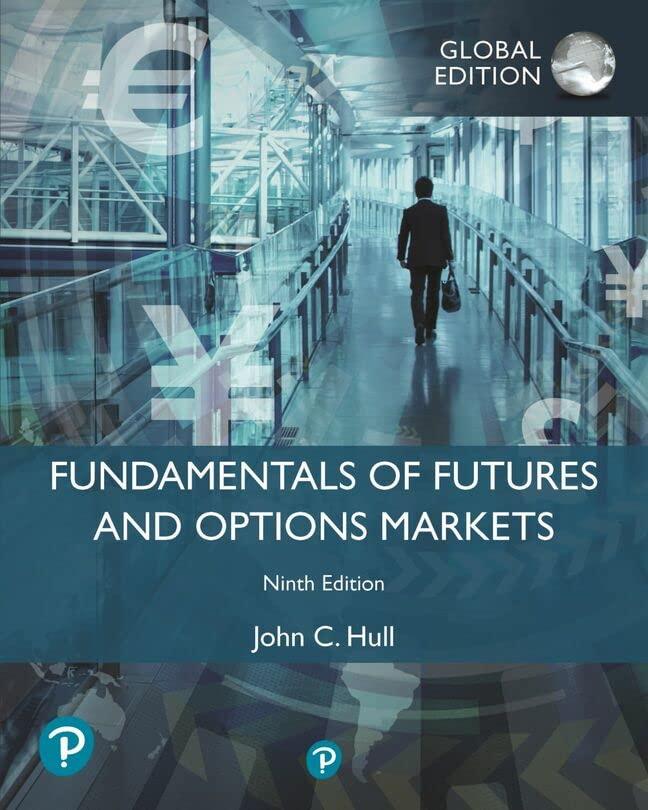Question
10. Sioux Financial Corp. has forecasted its bond portfolio value for one year ahead to be $105 million. In one year, it expects to receive
10. Sioux Financial Corp. has forecasted its bond portfolio value for one year ahead to be $105 million. In one year, it expects to receive $10,000,000 in coupon payments. The bond portfolio today is worth $101 million. What is the forecasted return of this bond portfolio?
11. Hurricane Corp. recently purchased corporate bonds in the secondary market with a par value of $11 million, a coupon rate of 12 percent (with annual coupon payments), and four years until maturity. If Bullock intends to sell the bonds in two years and expects investors' required rate of return at that time on similar investments to be 14 percent at that time, what is the expected market value of the bonds in two years?
12. Assume a bond with a $1,000 par value and an 11 percent coupon rate, two years remaining to maturity, and a 10 percent yield to maturity. The duration of this bond is
13. Assume a bond with a $1,000 par value and an 11 percent coupon rate, two years remaining to maturity, and a 10 percent yield to maturity. The modified duration of this bond is
14. Stephanie would like to purchase a bond that has a par value of $1,000, pays $80 at the end of each year in coupon payments, and has ten years remaining until maturity. If the prevailing annualized yield on other bonds with similar characteristics is 6 percent, how much will Stephanie pay for the bond?
15. Julia just purchased a $1,000 par value bond with a 10 percent annual coupon rate and a life of twenty years. The bond has four years remaining until maturity, and the yield to maturity is 12 percent. How much did Julia pay for the bond?
16. A $1,000 par value bond, paying $50 semiannually, with an 8 percent yield to maturity and five years remaining to maturity should sell for
17. Because of a change in the required rate of return from 11 percent to 13 percent, the bond price of a zero-coupon bond will fall from $1,000 to $860. Thus, the bond price elasticity for this bond is
18. The required rate of return on a certain bond changes from 12 percent to 8 percent, causing the price of the bond to change from $900 to $1,100. The bond price elasticity of this bond is
19. Assume a bond with a $1,000 par value and an 11 percent coupon rate, two years remaining to maturity, and a 10 percent yield to maturity. The duration of this bond is ____ years.
20. A bond has a $1,000 par value and an 8 percent coupon rate. The bond has four years remaining to maturity and a 10 percent yield to maturity. This bond's modified duration is ____ years.
Step by Step Solution
There are 3 Steps involved in it
Step: 1

Get Instant Access to Expert-Tailored Solutions
See step-by-step solutions with expert insights and AI powered tools for academic success
Step: 2

Step: 3

Ace Your Homework with AI
Get the answers you need in no time with our AI-driven, step-by-step assistance
Get Started


